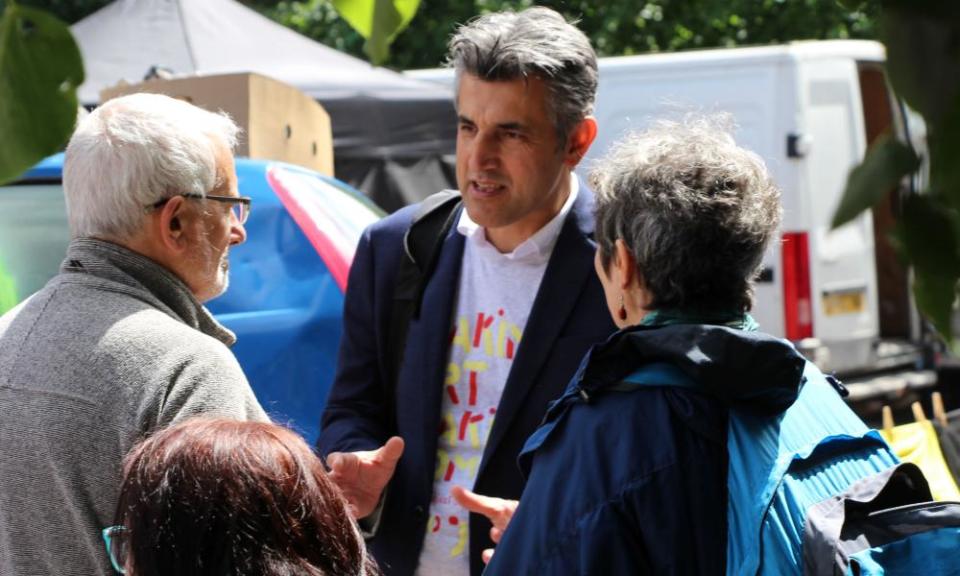Asylum hotel deaths ‘twice as high’ as Home Office admitted

Ninety-five people have died in asylum accommodation since April 2016, almost double the figure recently admitted by the government, raising suspicions the Home Office has deliberately downplayed the death toll.
And the data reveals that in the past two years there has been a particularly sharp increase in the number of deaths of those housed under asylum support provisions, such as in hotels.
Deaths leapt from four in 2019 to 36 in 2020 – a ninefold increase – with a further 33 people in the first eight months of 2021, bringing total deaths since the start of 2020 to 69 people, according to freedom of information (FoI) requests by the investigative journalism organisation, Liberty Investigates.
Dr Sabir Zazai, chief executive of the Scottish Refugee Council, called the figures “devastating” and urged an independent inquiry to establish why so many people in the state’s care were dying.
As recently as three months ago the Home Office said 51 people had died in its asylum accommodation, following FoI requests made by the Scottish Refugee Council (SRC). The new, much higher number has shocked experts and raised questions over the significant discrepancy in death tolls.
The SRC and Liberty Investigates asked about deaths of people housed under four sections of the Immigration and Asylum Act 1999. The only difference was that Liberty Investigates asked for deaths up to the end of August, two months more. This only explains 11 of the extra deaths, leaving 33 unaccounted for.
Pressed for an explanation, the Home Office said the discrepancy came from its interpretation of an extra phrase included in one of the requests from the Scottish Refugee Council – “whilst staying in asylum support accommodation”.
A Home Office spokesperson appeared to suggest it took this clause to mean deaths only taking place inside asylum accommodation, not if they were in hospital, for instance.
Separate documents seen by the Observer and Liberty Investigates reveal that a 77-year-old Salvadorian, who died in a hospital in Wakefield 10 days after falling ill at his asylum hotel on 5 May 2020, did not appear in the first FoI data but did appear in the response months later.
Stuart McDonald, SNP home affairs spokesperson, described the new figures as “appalling” and demanded reassurances that the discrepancy was not a deliberate Home Office decision to lower the number of deaths. He said: “A reasonable person reading [the original] request would not interpret it in that way. We need reassurance from the Home Office that this is because somebody interpreted the [first] FoI wrong and not because they were deliberately taking a restrictive view on it,” he said.
The Home Office, he added, should promise to publish annual data on deaths in asylum accommodation “openly and transparently”.
The response to the second SRC request included references to three deaths that took place “at hospital”, prompting concern the Home Office had even treated its two requests differently, despite being based on identical wording. The department later said it had included deaths in external settings in the second request due to “human error”.
Toufique Hossain, director of public law at Duncan Lewis solicitor firm, described the discrepancies as “staggering”.
He said. “What they’re obviously trying to do [in the first release of figures] is say: ‘It’s not as a result of, or connected to, our accommodation’.”
The steep rise in deaths coincides with the Home Office decision in 2020 to push thousands of asylum seekers into hotels. The Home Office claims this was to protect them from the spread of Covid-19, but drew heavy criticism from campaigners.
Asylum seekers – many of them survivors of conflict, trafficking or torture – previously housed in the community with access to local amenities, found themselves staying as long as a year in remote hotels housing hundreds of people. Some reported problems accessing medical help.
“Often these hotels are in the middle of nowhere. For example, at the Crowne Plaza in Heathrow, you’re surrounded by a wall or motorway – so all that adds to people’s mental health issues, and exacerbates the issues they already have as asylum seekers having fled torture or trafficking,” said Hossain. “It may not be a surprise that [the high death rate comes] in the year that they decided to try this sort of accommodation, whether it’s hotels or army barracks.”
A spokesperson at the Home Office said: “We take the health and wellbeing of asylum seekers seriously and like the general population, deaths occur for a number of reasons, including natural causes and terminal illness.
“The FoIs are from different organisations, asking for different information, hence the different responses. We interpreted the Liberty Investigates FoI to ask for the number of deaths of people provided with asylum accommodation, whether or not they were staying in that accommodation at the time of their death, whilst the Scottish Refugee Council’s FoI related to deaths that occurred in asylum accommodation.”
“The conclusion Liberty Investigates [and the Observer] has drawn from comparing these FoI requests is completely wrong and misleading,” they added. However, when pressed to specify which conclusions were wrong, they did not comment further.

 Yahoo Finance
Yahoo Finance 